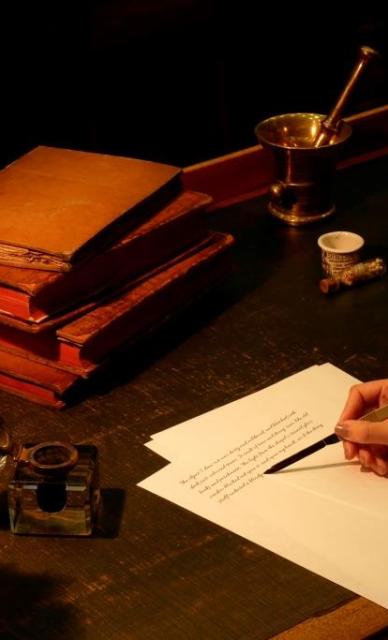Physicians' Gallery Newsletter
Updates on upcoming events, exhibitions and online stories
As with any research, the best way to get started is to collate everything you already know. Even something as simple as a full name or a birth date can go a long way towards helping you make progress.
Try to find out:
- Full names
- Where they lived
- Where they worked
- Approximate dates of birth, death and employment
- Their vocation
Remember, there is a difference between physicians, surgeons and pharmacologists/apothecaries. If you know their particular qualification, you’ll already have narrowed down your search a lot, but don’t worry if you’re not sure.
We have records of all Licentiates, Fellows and Members since the College’s inception in 1681. We also have complete sets of the Medical Registers since 1859 and Medical Directories since 1852. If your ancestor was involved with the College at any point, it is almost certain we will have a record of it. Please keep in mind, however, that due to the large volume of records, the amount of information we hold on an individual can vary.
We also have online resources that are freely available to the public. One is a database of English-speaking medical students who studied on the continent between the fifteenth and early nineteenth centuries. Another is our index of doctors in Scotland during the First World War. Our online archives and library catalogues are also freely available.
In various stages of research, you may come across acronyms placed after the names of medical practitioners. Generally, this will refer to their qualifications and status with specific institutions.
For physicians, their university degree will be abbreviated to MB or BM (Bachelor of Medicine), then MD (Doctor of Medicine). The year and place they graduated may also be included, e.g. MD. 1874, Univ. Edin.
In regards to the institution, they will either be a Licentiate, Member, Fellow or President. The name of their institution will immediately follow. For the Royal College of Physicians of Edinburgh, these will be abbreviated as LRCPE, MRCPE, FRCPE and PRCPE respectively. RCP, RSPSG and RSI indicate the Royal College of Physicians in London, Glasgow or Ireland. The year they joined the institution will also be given.
You can find explanations of other abbreviations in the Medical Register or Medical Directory.
Medical societies were an intrinsic part of the medical profession from the eighteenth to twentieth centuries. They supported local communities and were closely linked to universities. Many medical practitioners will have been part of these societies.
A particularly useful resource regarding medical societies is the below book.
Jenkinson, Jacqueline, Scottish Medical Societies 1731 – 1939, Their History. Edinburgh: Edinburgh University Press: 1993.
Since 1859, licensed medical practitioners must be registered with the General Medical Council to practice medicine in the UK. Before that, there was no authority for the whole country to license medical practitioners, so it can be difficult to trace someone accurately, unless they belonged to a particular institution. The complete listings of all registered doctors can be found in the Medical Register which used to be published annually, now available online:
The medical register - GMC (gmc-uk.org)
Medical Directories are another source of useful information. They are more detailed than Medical Registers, giving information on medical qualifications, appointments and sometimes even the publications of each individual doctor.
The first issue was published in October 1840 under the title Provincial Medical and Surgical Journal. Later, it briefly became known as the Association Medical Journal, before settling on the British Medical Journal in 1857. Now it is published as BMJ. You could find papers or letters written by a medical ancestor, as well as use the obituaries section for your research. It’s available online with a subscription, or you can visit the College to get access to the physical copies.

Updates on upcoming events, exhibitions and online stories